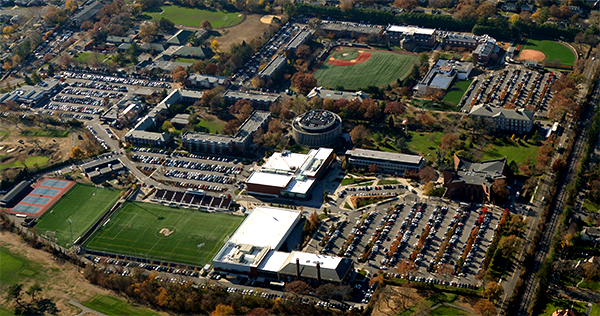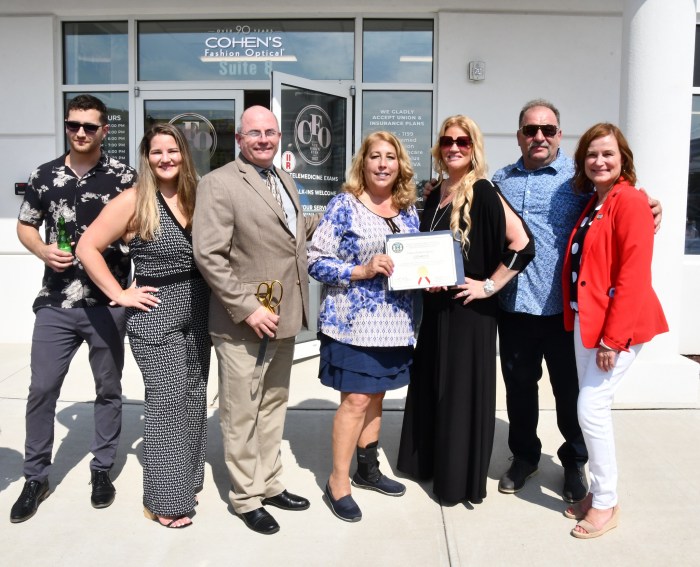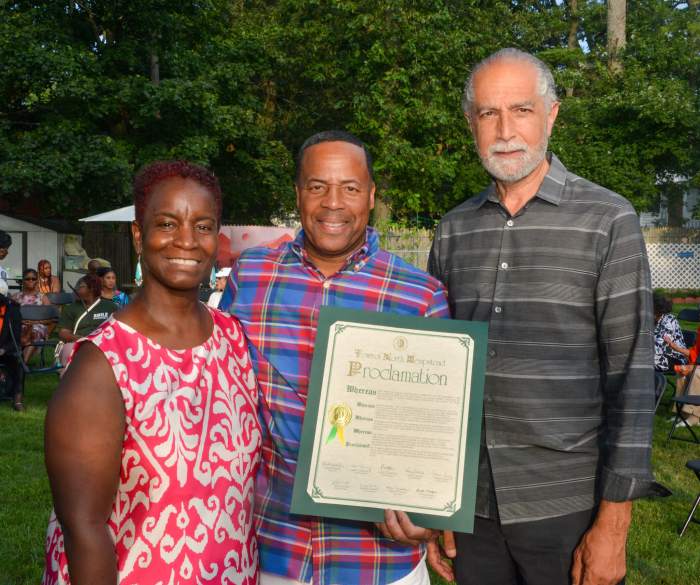Long Island colleges and universities are continuing efforts to recruit a diverse student body after the U.S. Supreme Court struck down affirmative action this June.
The landmark decision on affirmative action, which improved employment, educational, and other opportunities for members of groups subjected to discrimination, will likely impact some higher education institutions far more than others, some of which didn’t consider applicants’ races in the first place. Among them are Long Island’s Adelphi and Molloy universities.
“We have not considered their race. Now that doesn’t mean that we don’t actively work to recruit and retain students of color…we utilize our recruitment strategies to put Adelphi in front of the students that we want to serve,” says Shawana Singletary, chief enrollment officer and assistant vice president at Adelphi University in Nassau County.
Adelphi, which is an emerging Hispanic-serving institution, hosts a Hispanic Community Partnership Program each summer. Designed to expose high-achieving Hispanic students to college life, the program offers college readiness, career support and beyond, free of cost. The university also runs a mentorship program aimed at students of color, first-generation college students, veterans, and LGBTQIA+ students.

“Some students will not have had parents who’ve been to college and people who can rally around them and educate them on the college process. So we’ve created more opportunities for students to get that info from us firsthand,” says Singletary, who has 12 years of experience in admissions and 16 in education.
The university also offers a variety of merit- and need-based scholarships and grants; based on fall 2021 data, 99.2% of full-time first-year students received financial aid.
As of Fall, 2022, Adelphi’s undergraduate student population was 46% white with 53% students of color.
While Adelphi did not employ race-conscious admissions, Singletary acknowledges the need for such policies in certain elite schools.
“When you’re looking at a school like Adelphi, St. John’s, Hofstra, Malloy…These are schools that are welcoming all types of students. We’re not Ivy League.” She says that striking down race-conscious admissions “is detrimental to the environments where it was needed the most,” referring to Ivy League schools and predominantly white schools.
“There are certain rooms that you can’t sit in if you haven’t attended an Ivy League school. Taking race out of admissions in those environments absolutely is detrimental because now if the school is not intentional about getting in front of students of color, they’re going to be excluded from these conversations, these tables and these opportunities,” says Singletary.
Affirmative action has long been criticized for prioritizing race over merit.
“It’s offensive for people to believe that any Black person or person of color is in a space simply because of affirmative action,” says Singletary.
“It’s really about having access,” says Singletary. “People confuse the equality and equity conversation. Affirmative action was really just about allowing people of color to be at the table—and now the affirmative action strikedown takes that away unless colleges are intentional [about recruiting students of color].”
Moving forward, Adelphi will continue providing college readiness opportunities and recruiting a diversity of students.
“We’re going to continue to focus on exposing students to the environment at Adelphi…We want you to feel welcome here. We want you to see other people that look like you here,” says Singletary.
Like Adelphi, Long Island’s Molloy University has not considered race as a factor in admissions. Marguerite Lane, associate vice president for enrollment management at Molloy, weighed in.
“Education is about opportunity, and any decision that impedes opportunity is not a sound one,” said Lane.
The Supreme Court’s June decision has sparked discussion about legacy preference in college admissions. Dubbed by critics “affirmative action for the rich,” legacy admission is a preference toward students with familial relations to alumni of that institution.
“We have not been admitting students because of legacy. We haven’t admitted students because of their race,” says Singletary. “We are going to continue to acknowledge students who have parents or grandparents who attended Adelphi by giving them an alumni award. But we’re also going to make sure that we are inclusive of all students by creating engagement opportunities and connecting with them so that they know that they’re welcome here.”

































